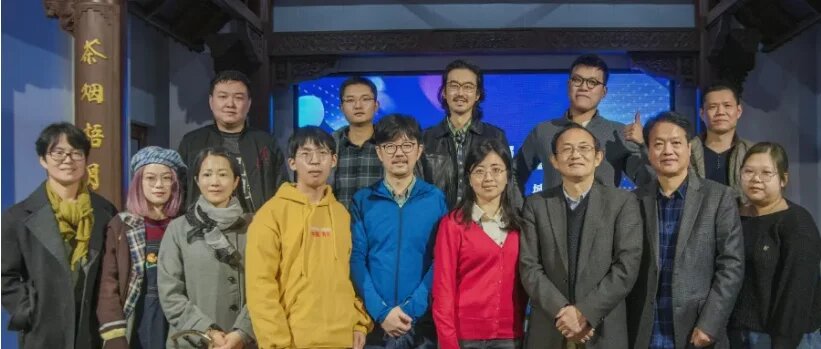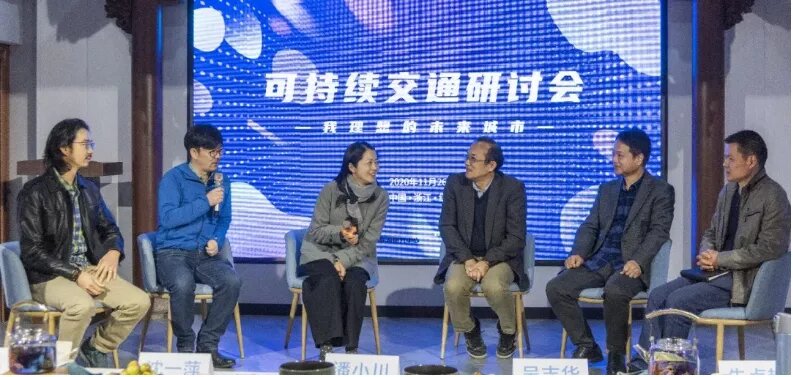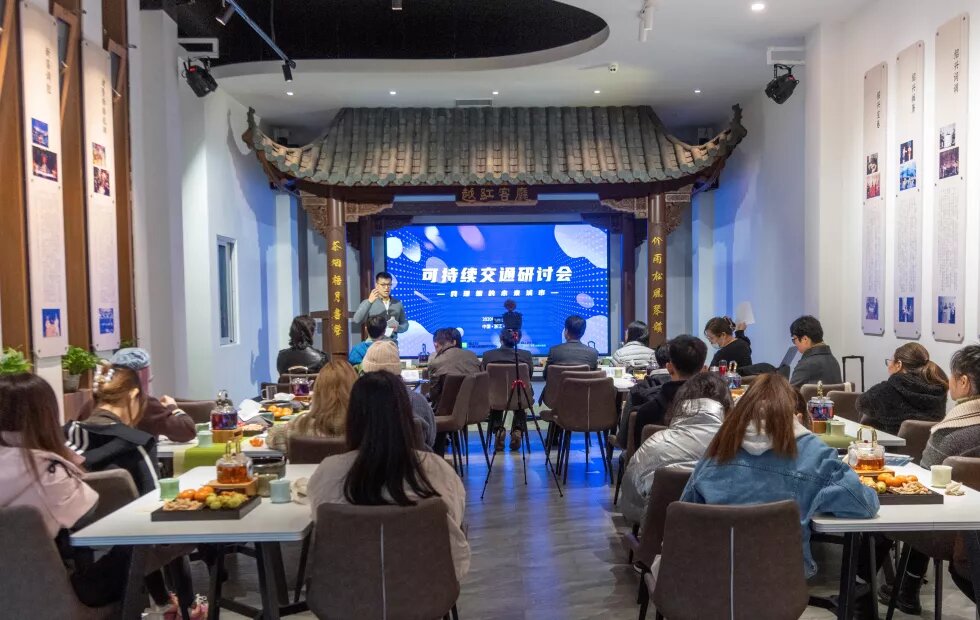

In the end of November 2020, with the support of the Beijing Representative Office of the Heinrich Böll Stiftung, the Rock Environment and Energy Institute (REEI) organized a workshop entitled “My Ideal Future City: Sustainable Transport” in Shaoxing, Zhejiang province, in East China.
Senior officials from the municipal transport department, members of Shaoxing’s Chinese People’s Political Consultative Conference (CPPCC), transport experts and environmental researchers from local universities were invited to the workshop. University students, representatives from local NGOs and media professionals participated in the workshop as well.
Taking Shaoxing as the main example for analysis, the workshop built on ongoing discussions about how a city can complete the shift to new energy sources and transform its transport system. (The latter being only one of various carbon intensive sectors that need to be transformed.) As an official “test-point” for this type of transition, Shaoxing has potential to serve as a good example for other highly urbanized areas in China and could hence contribute to achieving China’s carbon neutrality goal by 2060. Shaoxing represents a relevant case study for the future of other Chinese cities because it is located in the economically advanced Yangtze Delta region and faces various challenges and obstacles arising from its current push for a low-carbon energy transition (including in its transport sector). Adding perspectives from NGOs and societal actors to the ongoing conversation in, and about, Shaoxing’s transportation transition is thus of pressing importance.
Before this workshop, REEI circulated a questionnaire among local residents in Shaoxing and conducted numerous interviews with the city’s inhabitants in order to collect information regarding their daily commuting behavior, their environmental and health considerations, as well as their knowledge and perceptions regarding renewable energy and low-emission transport.
The workshop focused on discussing the results of REEI’s survey research and then turned to examining Shaoxing’s prospects en route to a low or zero-emission transport sector.
At the opening of the workshop, Professor Pan from Peking University gave a presentation about the future development of urban transportation systems from a health perspective. In doing so he was able to draw on many years of data and findings from his own research in this area. Given that health considerations normally are one of the main incentives for people to change their daily commuting, Professor Pan elaborated on the health impacts of various types of vehicle emissions.
Mr. Xu, a member of the research team from Shaoxing, presented the main findings of the questionnaire and the interviews with local residents. It emerged that nearly half of Shaoxing’s local people use private cars as their daily means of commuting. When explicitly considering the necessity of China’s energy transition in the transport sector, 66% local residents said that they would be willing to purchase electronic vehicles in the near future and over half of the respondents (particularly young people) stated that they were willing to pay for increased operation costs of clean public transportation. These results essentially indicate that local residents are currently already expecting an imminent shift towards a low-emission transport sector and are willing to take corresponding actions. Mr. Xu also shared his views regarding a more sustainable transport sector from his own perspective as a local resident and environmental advocate. He outlines a learning process for young people like him to observe and understand China’s carbon-related pledges and commitments to the international community and appreciate the dynamics between national (top level) low-carbon policy goals and their implementation at local level (such as in Shaoxing) as well as the overall relevance of these processes to people’s daily lives.
Mr. Lin and Mr. Zhao from REEI presented their analysis about the power consumption structure in Shaoxing and the necessity for an energy transition that includes the transport sector against the backdrop of China’s 2060 carbon neutrality target. They also shared their insights about the latest policies and regulations issued by the municipal government of Shaoxing regarding incentivizing the use of renewable energy as one of the approaches to achieve low-carbon development goals.
During the panel discussion, the invited experts expressed their appreciation for REEI’s local survey research: on the one hand, it provides an opportunity for local people to reflect and learns about the significance of low-carbon development and the relevance of climate change to their everyday life. On the other hand, the outcome of the research and the discussion with multiple stakeholders at the workshop also promises to play a role in helping Shaoxing’s decision makers to refine their low-emission development strategy for the transport sector.
